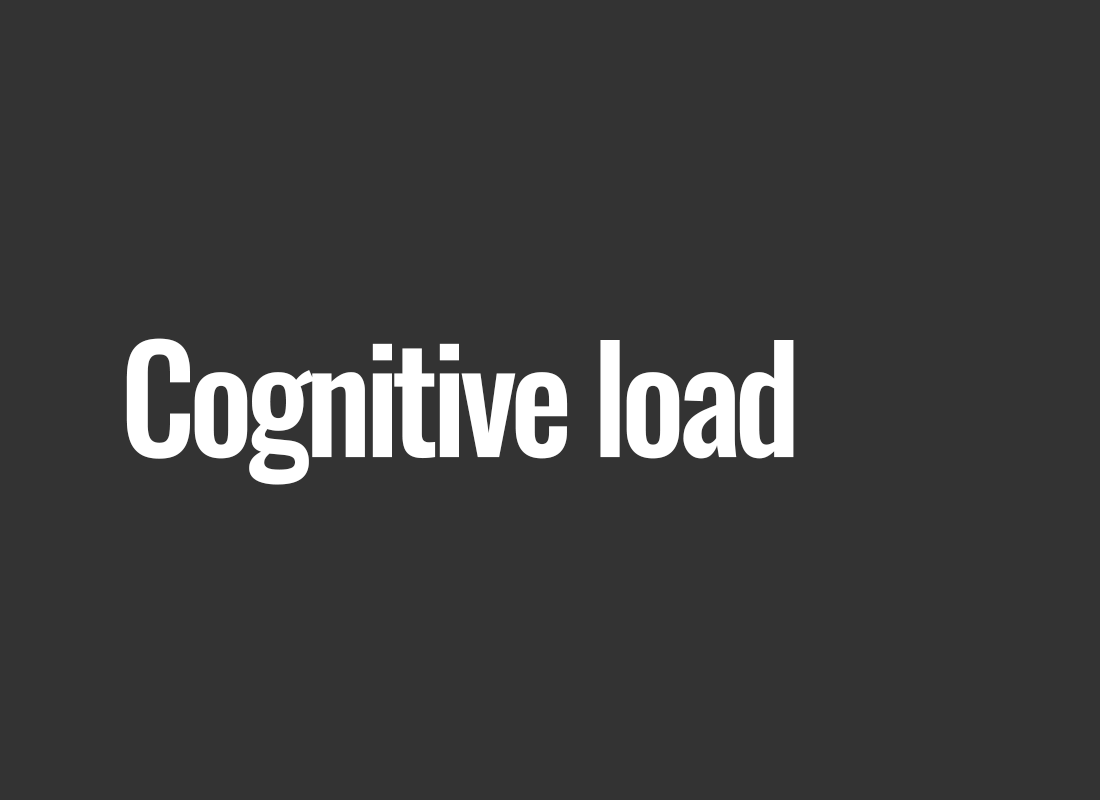Cognitive load
The concept of cognitive load, or cognitive burden, emerges as a significant element of success in the fields of UX, e-commerce, marketing, business, and IT. It encompasses the amount of information that an individual's brain must process while performing a specific task. In short, the lower the cognitive load, the easier and more efficient the use of products or services.
In the context of the fast-paced online life, where users are exposed to information bombardment, minimizing cognitive load has become not only a priority but also a crucial challenge for designers, marketers, and entrepreneurs. Before delving into the practical aspects of this concept, it's worth understanding that cognitive load can be divided into three categories: intrinsic, extrinsic, and germane. Intrinsic load is related to the task's inherent difficulty, extrinsic load involves external factors affecting task performance, and germane load pertains to the learning and understanding process.
In the pursuit of optimizing and facilitating interactions with products, platforms, or online content, UX designers and professionals in e-commerce and marketing focus on understanding and minimizing these three types of cognitive load. This innovative perspective, based on research into the functioning of the human brain, drives the development of new strategies and solutions in various fields.
Cognitive Load in Practice
In practice, understanding and effectively managing cognitive load translate to the quality of user experiences, the effectiveness of marketing campaigns, and the efficiency of business processes. Below, we'll explore several areas where the concept of cognitive load plays a crucial role.
Simple E-commerce Interfaces
In today's competitive e-commerce market, the ability to quickly attract and retain customer attention is a key element of success. Minimizing cognitive load in the context of e-commerce interfaces means creating websites or mobile applications that are intuitive and easy to navigate. Clear structure, legible typography, understandable icons—these design elements reduce the amount of information a customer must process during online shopping. The result is not only increased customer satisfaction but also a greater propensity to make purchases, leading to increased conversion rates.
Personalized Marketing Ads
In the marketing domain, understanding cognitive load allows for more precise and effective targeting of the intended audience. Personalized ads, based on demographic data, preferences, or purchase history, are a strategy that minimizes the amount of irrelevant information users have to process. Dynamic ads, adapting content to specific individuals, not only capture attention but also enhance campaign effectiveness. This approach becomes particularly important in an era of information saturation, where users are bombarded with hundreds of ads every day.
Optimization of Business Processes
The internal side of business operations also benefits from applying the concept of cognitive load. Simple and understandable procedures, transparent documentation, and intuitive work tools for employees reduce the amount of information they have to process on a daily basis. This not only shortens the time needed to perform tasks but also minimizes the risk of errors and increases the overall team efficiency. Employees using tools that do not generate unnecessary cognitive burdens are more satisfied, contributing to a positive work atmosphere.
Conclusion
In light of the examples above, it becomes clear that minimizing cognitive load is not just a trend in design or marketing but, above all, a crucial recipe for success in the modern, rapidly changing digital environment. Addressing the issue of excessive cognitive burden is a goal for many industries striving to enhance user experiences, increase the effectiveness of marketing efforts, and optimize internal processes. As technology advances, the perspective on cognitive load will continue to evolve, enabling more intuitive and user-friendly experiences in all areas of life. It seems that understanding and effectively managing cognitive load will become a key element in creating and maintaining competitive solutions in the era of digital transformation.



